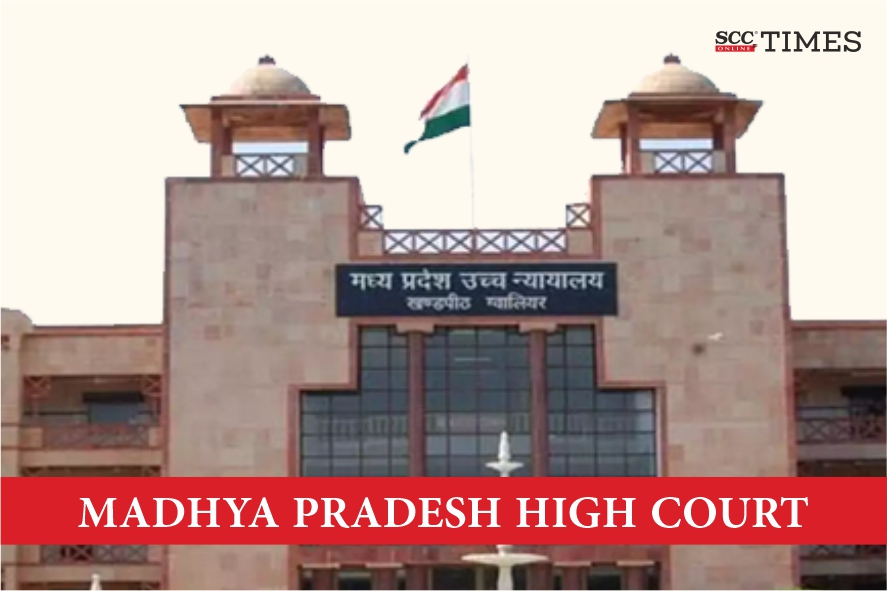Madhya Pradesh High Court: In a criminal revision petition filed under Section 397 read with Section 401 of the Criminal Procedure Code, 1973 (CrPC)1 challenging the discharge of husband from the charge under Section 377 Penal Code, 1860 (IPC), a single-judge bench of Binod Kumar Dwivedi, J., reaffirmed the existing legal position that marital rape is not recognised as a criminal offence under IPC and dismissed the revision petition.
In the instant matter, the petitioner-wife was married to the respondent 2-husband on 31-01-2016, in accordance with Hindu rites and customs. The marriage subsisted for about eight years. However, during the course of their marital life, the wife alleged that she was subjected to cruelty in connection with demand for dowry and was also forced to engage in unnatural sexual intercourse.
On 03-07-2023, the wife lodged an FIR at the Police Station Mahila Thana, Indore, alleging offences punishable under Sections 498-A, 377, 323, 294, and 506 read with Section 34 of the IPC and Sections 3 and 4 of the Dowry Prohibition Act, 1961.
Subsequently, the husband filed an application under Sections 227 and 228 of the CrPC seeking discharge from the charge under Section 377 IPC. The Sessions Court, vide order dated 03-02-2024, allowed the application and discharged the husband from the charge under Section 377 IPC.
The petitioner-wife contended that the discharge order is erroneous in law, particularly when the FIR and other supporting evidence clearly disclosed the commission of an offence under Section 377 IPC. The petitioner relied on P. Vijayan v. State of Kerala, (2010) 2 SCC 398 and argued that discharge can only be granted if the allegations do not disclose any offence.
However, the respondent 2-husband opposed the revision petition and submitted that post the constitutional interpretation of Section 377 in Navtej Singh Johar v. Union of India, (2018) 10 SCC 1 and the amended definition of rape under Section 375 IPC, sexual acts between a husband and wife, including those described as “unnatural,” are not punishable under Section 377 IPC.
The Court observed that although specific allegations of unnatural sexual intercourse are levelled against the husband, but in view of the amended definition of “rape” under Section 375 IPC, such an act, even if committed without consent, does not constitute an offence under Section 377 if it occurs between a husband and his legally wedded wife living together.
The Court cited Manish Sahu v. State of M.P., 2024 SCC OnLine MP 2603, where the Supreme Court held that “if a wife is residing with her husband during the subsistence of a valid marriage, then any sexual intercourse or sexual act by a man with his own wife not below the age of fifteen years will not be rape… absence of consent of wife for unnatural act loses its importance. Marital rape has not been recognized so far.”
As per amended definition of ‘rape’ under Section 375 of IPC and plethora of precedents referred, the Court held that “till date ‘marital rape’ has not been recognized under IPC.” The Court held that the trial court had rightly discharged the husband from Section 377 IPC. The Court upheld the discharge order and dismissed the revision petition was dismissed.
[Jaina Katlana v. State of M.P., Criminal Revision No. 1937 of 2024, Decided on 07-04-2025]
Advocates who appeared in this case :
Shri Abhay Saraswat, Counsel for the Petitioner/Wife
Shri Rahul Solanki, Counsel for the Respondent No. 1/State
Shri Ritu Raj Bhatnagar, Counsel for the Respondent No. 2/Husband
Buy Penal Code, 1860 HERE
Buy Code of Criminal Procedure, 1973 HERE
1. Section 438 read with Section 442 of the Bhartiya Nagrik Suraksha Sanhita, 2023 (BHSS).








